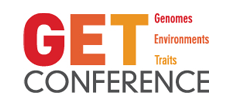
Daniel Vorhaus of the Genomics Law Report is also a member of the steering committee of the GET (“Genomes, Environments, Traits) Conference 2010. This unique conference, to be held on Tuesday, April 27, 2010 will gather together some of the biggest names in personal genomics, as well as most of the limited number of the people who have released their entire genomes to the public. Tickets for the conference go on sale today here.
As part of the GET Conference 2010, the new BioWeatherMap initiative will officially launch. According to the project’s website, BioWeatherMap is “a global, grassroots, distributed environmental sensing effort aimed at answering some very basic questions about the geographic and temporal distribution patterns of microbial life. Utilizing the power of high-throughput, low cost DNA sequencing and harnessing the drive of an enlightened public we propose a new collaborative research approach aimed at generating a steady stream of environmental samples from many geographic locations to produce high quality data for ongoing discovery and surveillance.â€
Unfortunately I will be unable to attend the GET Conference 2010, although I’m sure I and anyone else interested in the Conference will all be able to participate in at least a limited manner through social media.
The Press Release
Personal Genome Pioneers to Convene at the Inaugural Genomes Environments Traits (GET) Conference: Luminaries at landmark gathering to shed light on diverse impact large-scale personal genome sequencing will have on everyday life
BOSTON, Mass. (February 18, 2010) — Worldwide fewer than 20 individuals have had their genomes sequenced and made publicly available, and on Tuesday, April 27, for the first time, nearly all of them will appear together, along with a select group of business leaders and scientific visionaries, to share their experiences and to provide a look ahead at how personal genomics will rapidly and broadly impact society. This historic gathering will take place at the inaugural Genomes Environments Traits (GET) Conference as part of a day-long thought leadership forum, exploring the myriad ways in which the integration of personalized genomic, environmental and trait information will shape the ways in which we access and interact with our genetic information.
“The GET Conference 2010 marks the last opportunity in history to gather a majority of individuals in the world with public personal genome sequences in a single venue,†says George Church, founder and principal investigator of the Personal Genome Project and professor of genetics at Harvard Medical School. “With rapid advances in technology, the number of individuals with personal genome sequences is expected to rise dramatically, from dozens today to thousands by 2011 and a million or more individuals within the next few years.â€
The morning portion of GET Conference 2010 will feature wide-ranging discussions during which personal genome pioneers and globally recognized leaders of genomic science and industry, including Misha Angrist, George Church, Jay Flatley, Henry Louis Gates, Jr., Rosalynn Gill, Seong-Jin Kim, Greg Lucier, James Lupski, Stephen Quake, Dan Stoicescu and James Watson, will share their experiences and discuss the future of personal genomics. Award-winning science journalists Carl Zimmer and Robert Krulwich will moderate the discussions.
These experts will re-convene in the afternoon for a series of breakout sessions with other thought leaders and conference participants in a series of intimate discussions focused on the role personal genomes play in understanding ancestry, family life, nutrition, and disease risk, as well as the marketplace for products and services that utilize the analysis of genomic and environmental information, including new drug therapies, consumer products and law enforcement applications.
The afternoon program will additionally showcase:
- Four “prototypes of the future†sessions highlighting the next generation of personalized genomic products, services and activities and moderated by the executive editor of WIRED and author, Thomas Goetz.
- The public debut of the BioWeatherMap initiative, a collaboration between scientists and the public using next-generation sequencing platforms to address the fundamental question: “How diverse is the microbial life around us and how can we use that information to our advantage?â€
The GET Conference 2010 will take place on Tuesday, April 27, 2010 from 8:00 a.m. – 8:00 p.m. at the Microsoft New England Research and Development Center in Cambridge, Mass. The event will be limited to 200 registrants. To register for the GET Conference 2010, visit http://www.getconference.eventbrite.com/.
About the GET Conference 2010
The first annual GET Conference will gather 200 scientific, industry and thought leaders in the fields of personal genomics, personalized medicine, microbiomics and systems biology, as well as prominent hedge fund managers, VCs, private investors, and philanthropists, in an intimate venue to consider the present and future of personal genomics.
All proceeds from the GET Conference will benefit PersonalGenomes.org, a 501(c)(3) charitable organization which supports the Personal Genome Project and whose mission is to serve as a global ambassador for emerging technologies and knowledge that will positively impact the health and well-being of humankind. For more information, visit www.getconference.org, or e-mail info@getconference.org.
Conference sponsors include: Alan & Priscilla Oppenheimer Foundation; Knome; Life Technologies; Microsoft; OHO Interactive; Procter & Gamble; Robinson, Bradshaw, & Hinson; Schwartz Communications; and Third Rock Ventures. Limited sponsorship opportunities are still available. For more information email: info@getconference.org.
About the Personal Genome Project
The Personal Genome Project is an open-ended research study that aims to improve the understanding of genetic and environmental contributions to human traits. The project is currently enrolling members of the public who are willing to share their genome sequence and other personal information with the scientific community and the general public. For more information, visit http://www.personalgenomes.org/.
2 Responses
Comments are closed.